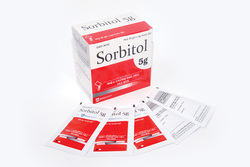Pharmacology definition - Laxatives

Laxatives
There are three different forms of laxatives such as stool softeners, bulking laxatives and stimulant/ irritants.
Laxatives are useful in treating patient with constipation. Sometimes, laxatives may be useful in bowel preparation in cases of patient preparing for colonoscopic preparation.
Stool softeners may include mineral oils and docusate. Stool softeners, may reacts by softening the stool through emulsification of the stool.
Bulking laxatives agents are sorbitol, magnesium salt, lactulose and sorbitol. Bulking laxatives agents may draw water into the intestine via osmosis which distend the bowel and increase in the motility of the intestine.
Stimulants or irritants such as senna, castor oils and bisacodyl may increase the peristalsis of the intestine by stimulating or irritation of the mucosal which finally lead to an increase in the motility of the gut.
The common side effects of laxatives is abdominal discomfort and abdominal cramp.
There are three different forms of laxatives such as stool softeners, bulking laxatives and stimulant/ irritants.
Laxatives are useful in treating patient with constipation. Sometimes, laxatives may be useful in bowel preparation in cases of patient preparing for colonoscopic preparation.
Stool softeners may include mineral oils and docusate. Stool softeners, may reacts by softening the stool through emulsification of the stool.
Bulking laxatives agents are sorbitol, magnesium salt, lactulose and sorbitol. Bulking laxatives agents may draw water into the intestine via osmosis which distend the bowel and increase in the motility of the intestine.
Stimulants or irritants such as senna, castor oils and bisacodyl may increase the peristalsis of the intestine by stimulating or irritation of the mucosal which finally lead to an increase in the motility of the gut.
The common side effects of laxatives is abdominal discomfort and abdominal cramp.
